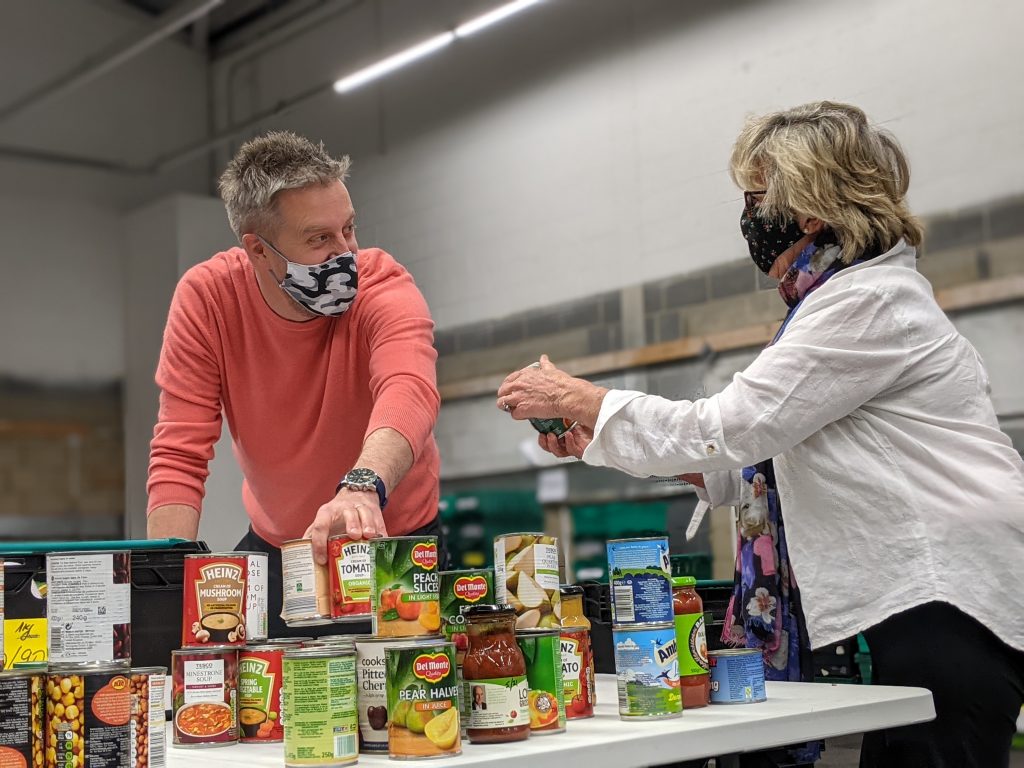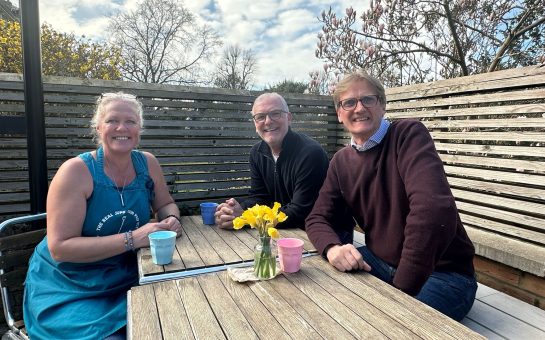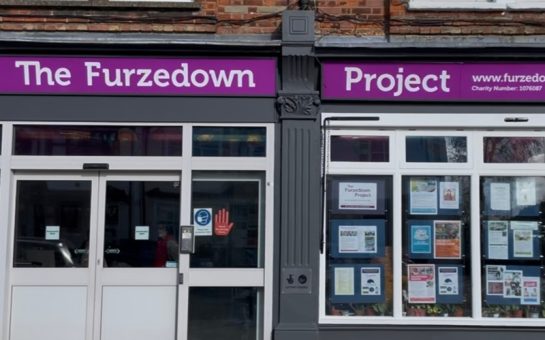A Wandsworth food bank welcomed the UK’s largest ever study into poverty and food insecurity, which found people forced to use food banks face extreme poverty, with just £248 to survive on per month after housing costs.
The State of Hunger 2021 research, commissioned by the Trussell Trust, a UK charity that works to end the need for food banks, and carried out by Heriot-Watt University, found that 95% of people referred to food banks in the Trussell Trust network were destitute, meaning they were unable to eat or stay warm and dry.
During the pandemic, between April 2020 and March 2021, Wandsworth Foodbank supported nearly 6000 people with a 76% increase in emergency food supplies provided.

Sarah Chapman, advocacy and communications manager at Wandsworth Foodbank, said: “We are so pleased to help people.
“It is an honour and a privilege to do it and we will do it with love, dignity and respect, but this is not okay.
“It is not okay that parents are skipping meals to feed their children and it is not okay people are working two jobs, working incredibly hard and still do not have enough income to pay their bills.”
Trussell Trust figures show that over the past five years the need for food banks in their network, which includes more than 1200 UK food banks, has increased by 128%.
The study showed that the main driver behind food bank use was problems with the social security system, including payments failing to cover the cost of living and the five week wait for Universal Credit.
The majority of food bank users were in debt with the most alarming finding being that during the pandemic, the DWP was the most common creditor to people referred to food banks with almost half (47%) owing money to the DWP, mostly due to people repaying advance payments.
High rates of unemployment, ill health and disability were also key contributors, with an increase in people reporting mental health problems from 51% in early 2020 to 72% in mid-2020.
Asylum seekers were also forced to food banks after being unable to work or receive Universal Credit while their claim was being processed by the Home Office.
Who is at risk?
Child hunger has been a serious issue throughout the pandemic, highlighted by Marcus Rashford’s campaign to end child food poverty, including his previous and current demands for free school meals to continue over summer and his condemnation of the inadequate free school meal parcels provided to families during lockdown.
In 2019-20 food banks in the Trussell Trust network supported 320,000 children with a 49% increase since 2018-2019.
Wandsworth Foodbank said that four in ten of the emergency food supplies they provided during the pandemic were for children, with the majority being at primary school age or younger.
Josie*, who was forced to Wandsworth Foodbank after delays to her husband’s furlough payments, said: “I do private cleaning jobs as and when I can, but there’s no work, no pay and I haven’t been able to work during lockdown.
“We’re very worried about having empty shelves and not being able to feed our child.
“We were most concerned about paying the rent above all else, but at the same time worried about providing for our son.”
Disabled people, single parent families, ethnic minorities, younger people, social renters and people in poor health were all more likely to be forced to a food bank, research showed.
Wandsworth resident Ruth*, a middle-aged mother of two and full-time carer for her husband said: “My husband has only been able to leave the house for blood tests and we have to get a cab to do that which costs money.
“Normally my husband would be at the day centre and then I turn all the electrics off but the day centre is shut so the electricity bill has gone up.
“Because of his health problems he is freezing cold so we have to have the heating on all the time.”
Ruth receives carers allowance, but at just £67.60 a week it is not enough to cover basic essentials, so her GP referred her to Wandsworth Foodbank.
Research showed that more than six in ten (62%) working-age people referred to a food bank in early 2020 were disabled, a number more than three times the rate in the working-age population.
James*, a middle-aged man who lives on his own and cannot work due to long-term health issues said: “I need to use the food bank because my Universal Credit has been capped and I have been refused Personal Independence Payment.
“Other than food, I haven’t been able to afford proper shoes and I have very swollen feet.
“Over lockdown I’ve been scared. I desperately want to walk and do exercise and I miss green spaces.”
The benefit cap in greater London means payments are limited to £15,410 per year for a single working-age adult like James, and this needs to cover rent, all bills, food, clothing and other essentials.
Steps campaigners want the Government to take
The Trussell Trust and Wandsworth Foodbank urge the Government to commit to a social security system that ensures all people can afford the basic essentials, get their payments quicker and that the DWP is a responsible lender.
Trussell Trust chief executive Emma Revie said: “Hunger in the UK isn’t about food – it’s about people not being able to afford the basics.
“It’s time for the Government to make this a priority – to recognise that it must be an essential part of their levelling up agenda to work towards a hunger free future.”
With high rates of unemployment and redundancies, the Trussell Trust and Wandsworth Foodbank stressed that more people will need support and that the government must keep the £20 increase to Universal Credit, introduced last year but will be cut in September.
The First Minister of Wales, Mark Drakeford, recently announced plans to trial a basic universal income scheme to tackle poverty in Wales.
Wandsworth Foodbank also announced plans to conduct its own research, looking at the drivers of food bank use and the impacts of poverty and destitution in Wandsworth.
Chapman is also asking Wandsworth Borough Council to create an anti-poverty strategy, strengthen and invest in local welfare assistance schemes, and commit to building on the financial assistance that they provided to people during the pandemic.
If you would like to take action yourself, you can write to your local MP and join the Trussell Trust’s Hunger Free Future movement here.
*Names have been changed to keep interviewees anonymous.
Feature image credit: Joel Muniz




